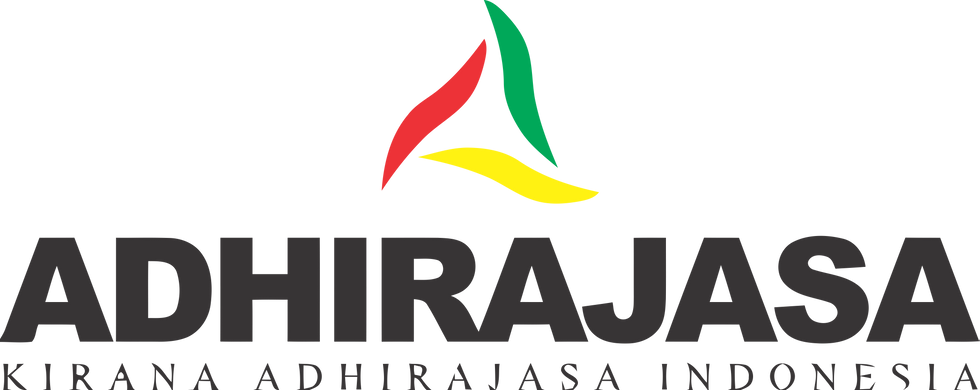New Regulations from the Ministry of Tourism on Hotel Business Standards

Industri Pariwisata - Hospitality is one of the tourism sectors playing a crucial role in the development of tourism in Indonesia. Hotels serve as accommodation facilities providing lodging and additional amenities for tourists. Hence, clear and measurable hotel business standards are necessary to ensure the quality of services and facilities offered to tourists.
The Indonesian government has issued regulations through the Ministry of Tourism regarding hotel business standards to regulate and establish these standards in Indonesia. These regulations cover basic requirements, absolute criteria, and non-absolute criteria that hotel businesses must meet.
Hotel Business Standards
Hotel business standards are the requirements that hotel businesses must meet for the operation of their business. These standards consist of basic requirements, absolute criteria, and non-absolute criteria.
Basic Requirements
Basic requirements are mandatory conditions that hotel businesses must fulfill. These include:
1. A fitness certificate issued by the government technical agency.
2. Registration as a tourism business in the field of hotel accommodation.
3. Compliance of the hotel location with specified requirements.
4. Buildings and facilities meeting the prescribed standards.
5. Equipment meeting the specified standards.
6. Qualified workforce.
7. Management meeting the specified standards.
Absolute Criteria
Absolute criteria are conditions that hotel businesses must satisfy to obtain star classifications. These criteria include:
1. Number of rooms.
2. Room size.
3. Room facilities.
4. General facilities.
5. Support facilities.
Non-Absolute Criteria
Non-absolute criteria are conditions that hotel businesses can fulfill to achieve star classifications. These criteria encompass:
1. Room service.
2. Food and beverage service.
3. Recreational services.
4. Business services.
Appendix to Hotel Business Standards
The Ministry of Tourism's regulation on hotel business standards includes an appendix providing further explanations about basic requirements, absolute criteria, and non-absolute criteria. This appendix serves as a reference for hotel entrepreneurs in meeting the standards.
Hotel Business Standards in Indonesia
Hotel business standards in Indonesia are regulated by the Minister of Tourism Regulation No. 12 of 2019, the Second Amendment to the Minister of Tourism and Creative Economy Regulation No. PM.53/HM.001/MPEK/2013 on Hotel Business Standards. This regulation categorizes hotel businesses into five classes:
1. Melati class.
2. 1-star class.
3. 2-star class.
4. 3-star class.
5. 4-star class.
To obtain star classifications, hotels must fulfill the specified absolute criteria. The classification assessment is carried out by the Tourism Business Certification Institute (LSU Bidang Pariwisata).
Hotel Business License Requirements
To operate a hotel business, hotel entrepreneurs must obtain a hotel business license from the local government. The requirements for a hotel business license include:
1. A fitness certificate issued by the government technical agency.
2. Registration as a tourism business in the field of hotel accommodation.
3. Statement of compliance with regulations.
4. Statement of ability to provide manpower.
5. Statement of ability to provide capital.
Hotel Business Standard Certification
Hotel entrepreneurs meeting the hotel business standards are eligible to receive a hotel business standard certificate. This certificate is issued by the Tourism Business Certification Institute (LSU Bidang Pariwisata). The hotel business standard certificate is valid for five years and can be renewed.
Hotel Business Standard regulations
Hotel business standard regulations are crucial instruments for enhancing the quality of services and facilities in Indonesian hotels. These regulations are expected to provide legal certainty for hotel entrepreneurs in conducting their business and assure tourists of the quality of services and facilities offered by hotels.
Hotel business standard regulations play a vital role in the development of tourism in Indonesia. These regulations contribute to improving the quality of hotel services and facilities, ultimately leading to increased tourist satisfaction.
The quality of hotel services and facilities is a crucial factor influencing tourist satisfaction. Tourists who are satisfied with hotel services and facilities are more likely to revisit the same hotel and recommend it to others.
Hotel business standard regulations can enhance the quality of hotel services and facilities by establishing requirements that hotel businesses must meet. These requirements encompass essential aspects of hotel operations, such as location, buildings and facilities, equipment, workforce, and management.
Location, buildings and facilities, and equipment requirements aim to ensure the comfort and safety of tourists during their stay in hotels. Workforce requirements aim to guarantee the competence and professionalism of hotel staff. Management requirements aim to ensure effective and efficient hotel management.
In addition to improving the quality of hotel services and facilities, hotel business standard regulations also contribute to enhancing the competitiveness of hotels in Indonesia. Hotels that meet these standards gain a competitive advantage over those that do not.
This competitive advantage can include:
1. Better quality of services and facilities.
2. More comprehensive facilities.
3. Affordable prices.
4. Strategic locations.
Hotels with a competitive edge will find it easier to attract tourists and increase sales. Ultimately, this will boost hotel revenue and drive economic growth.
Here are some positive impacts of hotel business standard regulations on the development of tourism in Indonesia:
1. Increased tourist satisfaction.
2. Improved hotel competitiveness.
3. Increased hotel revenue.
4. Enhanced economic growth.
To enhance the effectiveness of hotel business standard regulations, the government needs to conduct awareness campaigns and educate hotel entrepreneurs about these regulations. The government also needs to strengthen supervision of the implementation of hotel business standard regulations. Additionally, periodic evaluations of these regulations by the government are essential.
More information:
Tourism Business Consultant Info:
(Admin) (+62)821 3700 0107
Read also: The Importance of Consulting Hotel Business Standards for a New Hotel, 5 Standard Procedures for Managing Business Tourism Area That You Must Know
Tag :ls bmwi, lsppiu, jttc, jana dharma indonesia








Comments